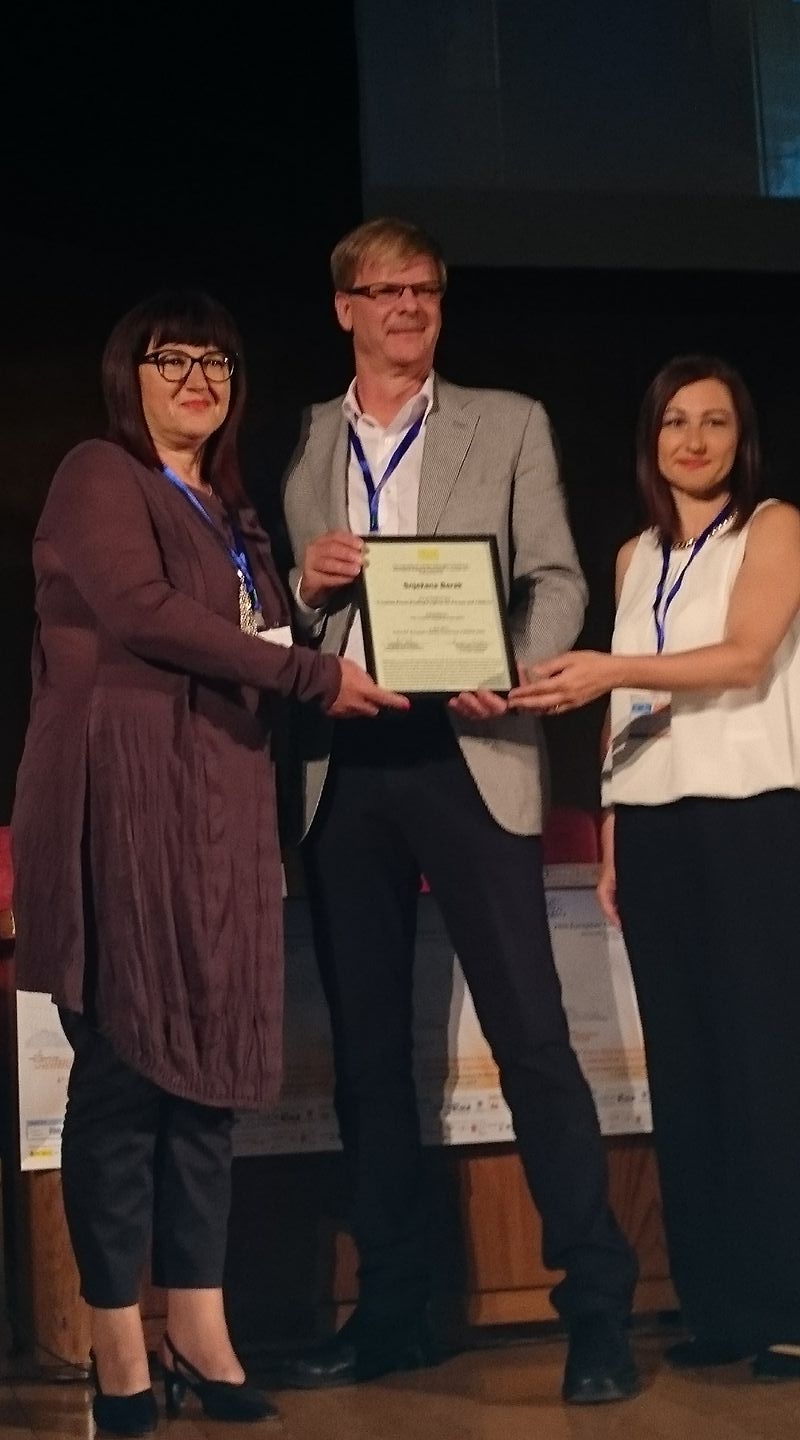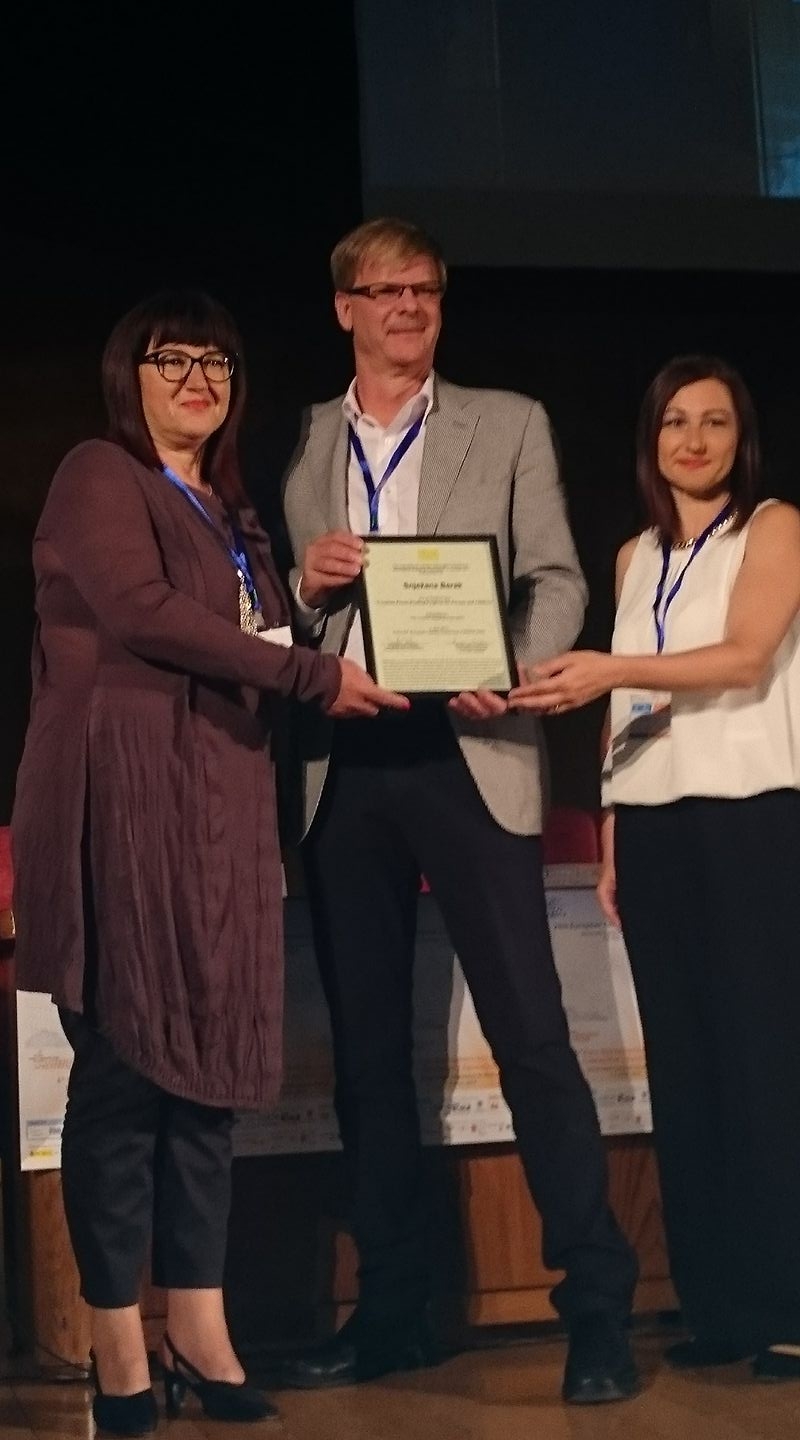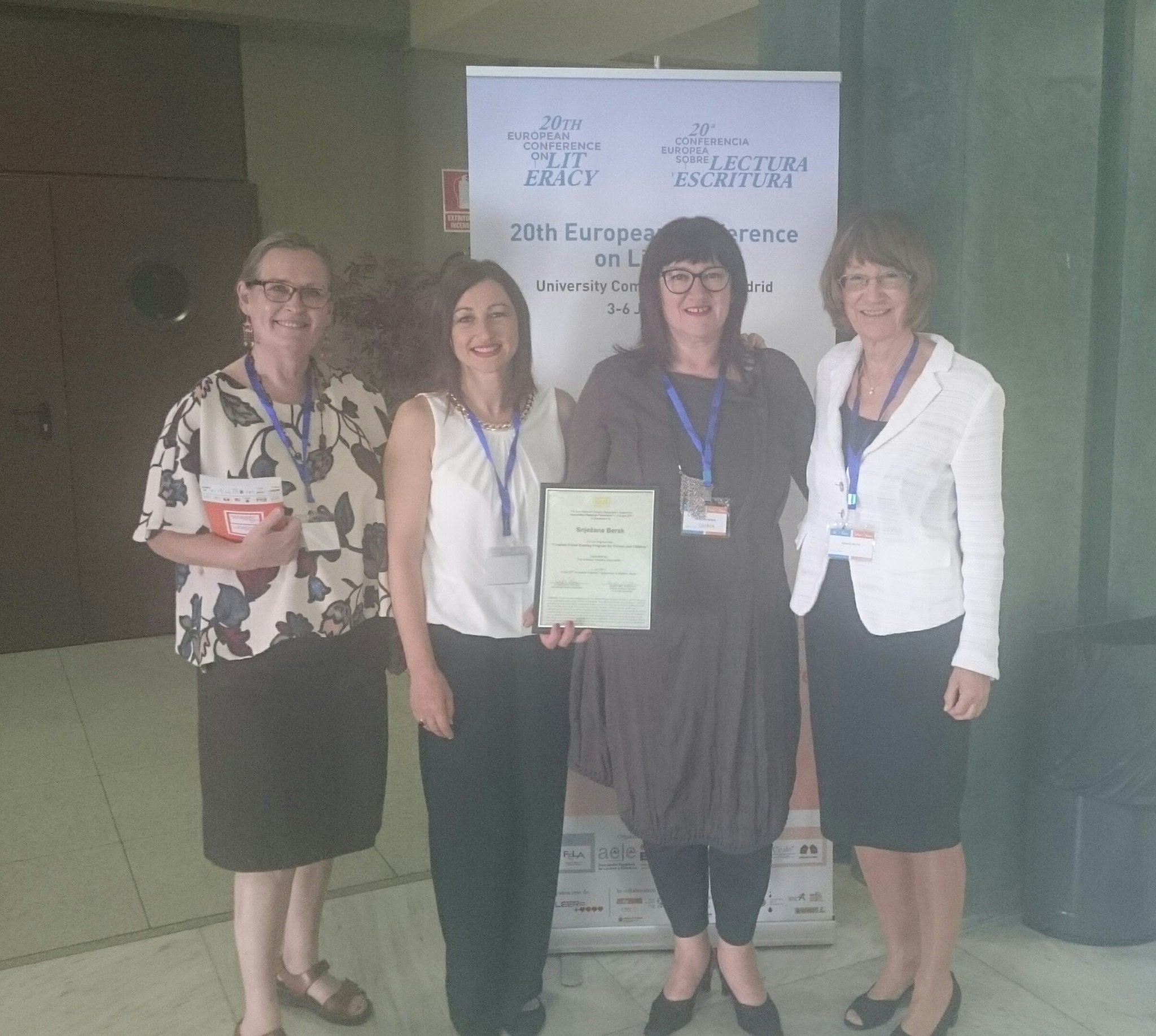The Spanish Association of Reading and Writing (AELE) organized the 20th European Conference on Literacy and Sixth Iberoamerican Forum on Literacy and Learning. Both events took place in Madrid (Spain) from 3 to 6 July, 2017. The European Conference is organized in collaboration with the International Development in Europe Committee (IDEC) of the International Literacy Association (ILA) and Federation of European Literacy Associations (FELA). This European Conference provides a meeting point for discussing issues related to the literacy as social practice. The Conference motto is “Working together to encourage equity through literacy communities: a challenge of the 21st century”. One of its main objectives was to highlight researches and good practices in literacy within the eight themes: citizen participation in plurilingual and multicultural contexts, community of readers and writers throughout life cycle; the active participation in the written cultures in the current societies accredits the level of literacy of the population of the citizens of the XXI Century different literacies (audio-visual, technological, informational and plurilingual); children’s and young people’s literature; literacy policies, diversity of readers and writers and promotion of reading and writing in and out of educational institution; learning to teach reading and writing and presence of written culture in society (visual arts, theatre, journalism, literature, cine, dance, etc.).
The International Literacy Association Award for Innovative Reading Promotion in Europe 2017. is presented to Snježana Berak and Kristina Čunović for an original idea Croatian prison reading program for parents and children submitted by the Croatian Reading Association (CroRA). Every two years on a bilingual European Conference on Literacy one project/program awarded by the International Literacy Association with the International Literacy Association Award for Innovative Reading Promotion in Europe. In 2017. awarded program was Croatian prison reading program for detainees and their children and this year the Award Committee included former IDEC chairpersons (Greg Brooks, EldbjørgTøsdal Lyssand, Meeli Pandis, Ulla-Britt Persson, Pehr-Olof Rönnholm, Peter Schneck, Ann-Sofie Selin, Gerry Shiel) and was chaired by Meeli Pandis.
The Croatian Reading Association is a nongovernmental, not-for-profit and voluntary association whose mission is to encourage, research and promote reading and literacy. CroRA has many projects among which the most interesting are the publication of Association’s magazine Hamster, organizing different activities for the celebration of the International Literacy Day; an annual Conference organized in partnership with central Zagreb City Library, on the September 8th, and an annual photography contest “Smile… while reading!” for the best photography of a person reading. Very important project in which CroRA members are involved is the organization of the first national campaign “Read to me!”, promoting early reading aloud and encouraging parents and other adults to read out loud to children. Association’s latest project is Croatian prison reading program for detainees and their children. In Croatia, about 15,000 children have at least one parent in prison. These children are invisible to the community and are a vulnerable group that are sometimes direct, but always indirect victims of their parents’ crimes. Children are frequently distressed, disturbed and confused, as well as financially disadvantaged, particularly by a father’s imprisonment. CroRA was in partnership with association Parent in Action (RODA) in 2015. and 2016, in a Reading program for parent’s prisoners in Požega, Glina and Lepoglava penitentiaries with the financial support from the Croatian Ministry of Social Policy and Youth which recognized this project as one of the high quality projects oriented towards supporting the family and promoting protection of children’s rights. This pilot-project was only implemented among father’s prisoners and in three biggest Croatian penitentiaries. By implementing this Reading program we expect to raise social awareness about the problems, needs and rights of children whose parents are in prisons, as well as the need for the community to get involved and give support to their families..
CroRA was involved in this project in the domain of its expertise – promoting the importance of reading both among grownups and children, and especially reading out loud to children. Members of CroRA Kristina Čunović, Snježana Berak and Ljiljana Sabljak in cooperation with Ivana Zanze from association RODA have developed and implemented one-day workshops for prisoners and prison staff in penitentiaries and they prepared the manual for the implementation of the Reading programme. They also prepared a list of quality picture books and books for children and youth which were acquired for the prisoners as part of the program. The program is organised so that fathers in prison get picture books or books appropriate for older children, among which they choose a book for their child. They read the text aloud as if they were reading it to their child directly, and the prison employees assist them in recording the audio. The audio recording with the book are then sent to the child. This is a very encouraging way of strengthening or renewing a strained relationship with their father, especially for young children. Moreover, reading to a child has been proven to provide strong developmental support in helping a child develop its reading skills, which form the basis of its literacy and further education.
At least 100 fathers and 200 children participated in the reading program 2015/16 and as such got the opportunity to bond through reading and listening to chosen picture books and stories being read aloud. During the whole implementation of the programme all of the planned activities are being monitored, and there are evaluation questionnaires for every target group. Evaluation of the Reading program was made according to the results of questionnaires answered by parents/prisoners, prison staff and the families of the prisoners. Evaluation was anonymous. In the evaluation fathers/prisoners point out positive emotional changes, improvement in the communication between them and the child, and overall mutual benefits. They were mostly satisfied with the collection of chosen books and they were very pleased with the prison staffs involvement and spoke highly of their engagement and professionalism. Prison staff’s evaluation made it clear that they support the program and mentioned challenges they faced which were all technical. Prisoner’s family members also spoke highly of the program, and they evaluated that the program strengthens the bond with the father and helps preserve that bond. Also that it makes the child feel happier and more secure. All the children listened to the recording and it made them happy, they enjoyed listening to their father’s voice. Most of the family members also stated that the child wanted to write to the father and expressed a wish to visit him more often.
The Reading Program for the prisoners and children will continue for the next three years thanks to the financial support of the Ministry of Justice the same way it was implemented as the pilot project in the Požega penitentiary, and penitentiaries in Glina and Lepoglava and since recently in the Zagreb prison. It is expected that in the program will participate male and female prisoners during the three years of its implementation, by which we expect to include most of the prisoners who were parents of minor children during the time of their sentence.
Snježana Berak
Kristina Čunović
Croatian Reading Association
Trg Eugena Kvaternika 11
43000 Bjelovar
Hrvatska // Croatia
Web: www.hcd.hr
E-mail: hcd@hcd.hr
E-newsletter: http://hcdbilten.wordpress.com/



Leave a Reply